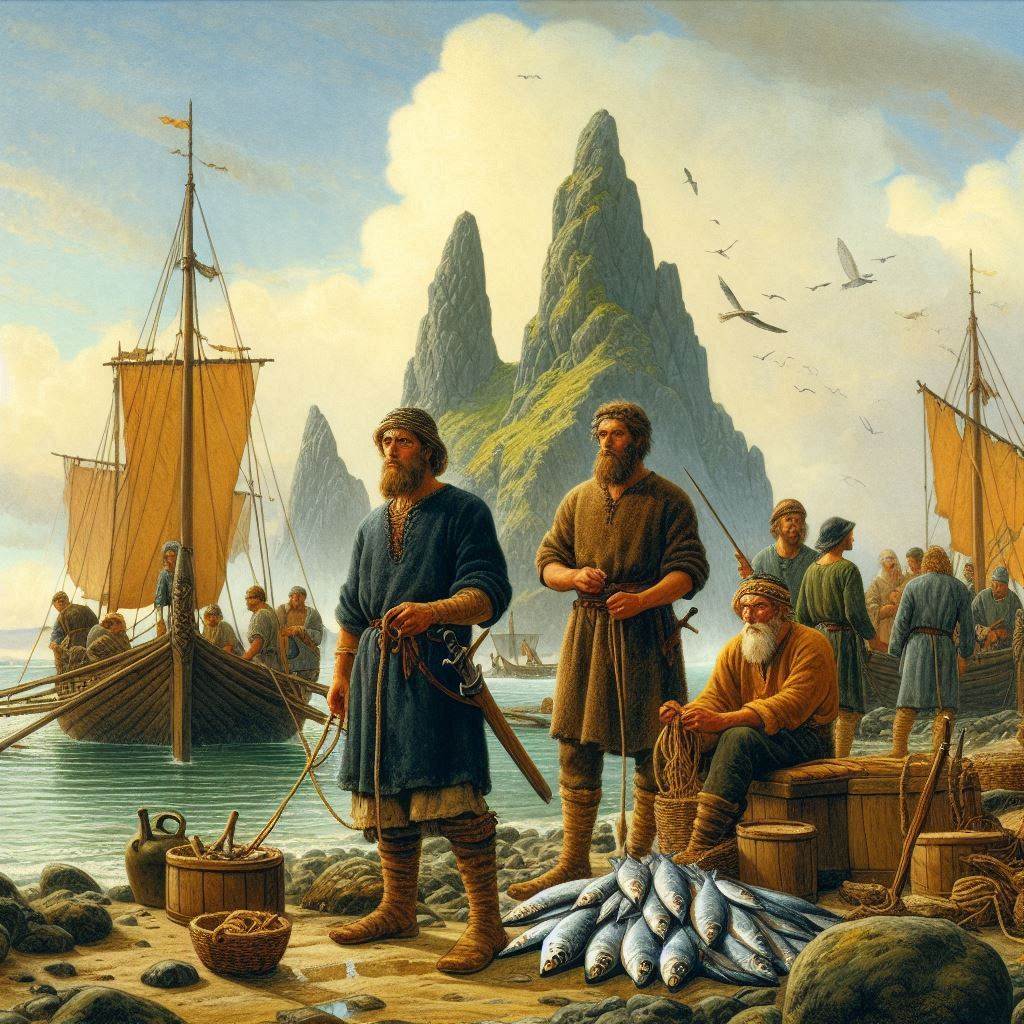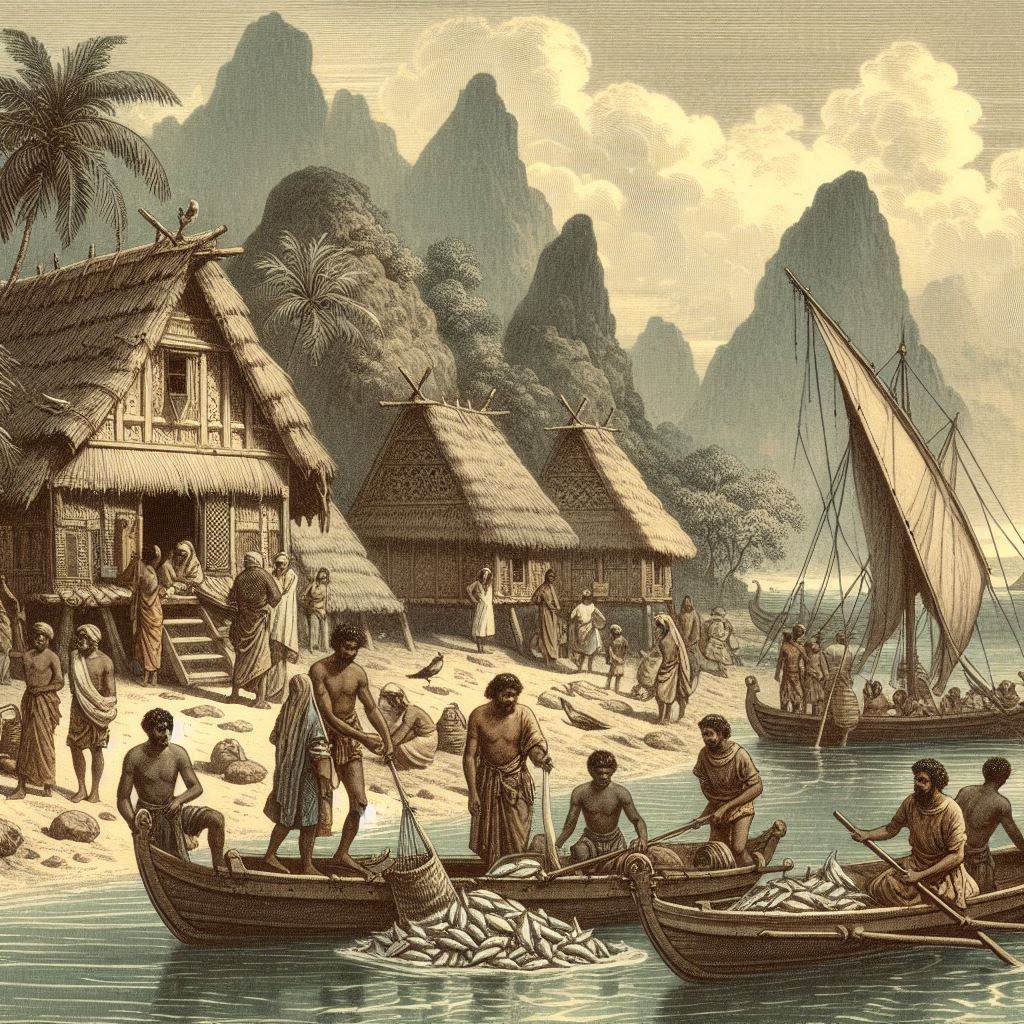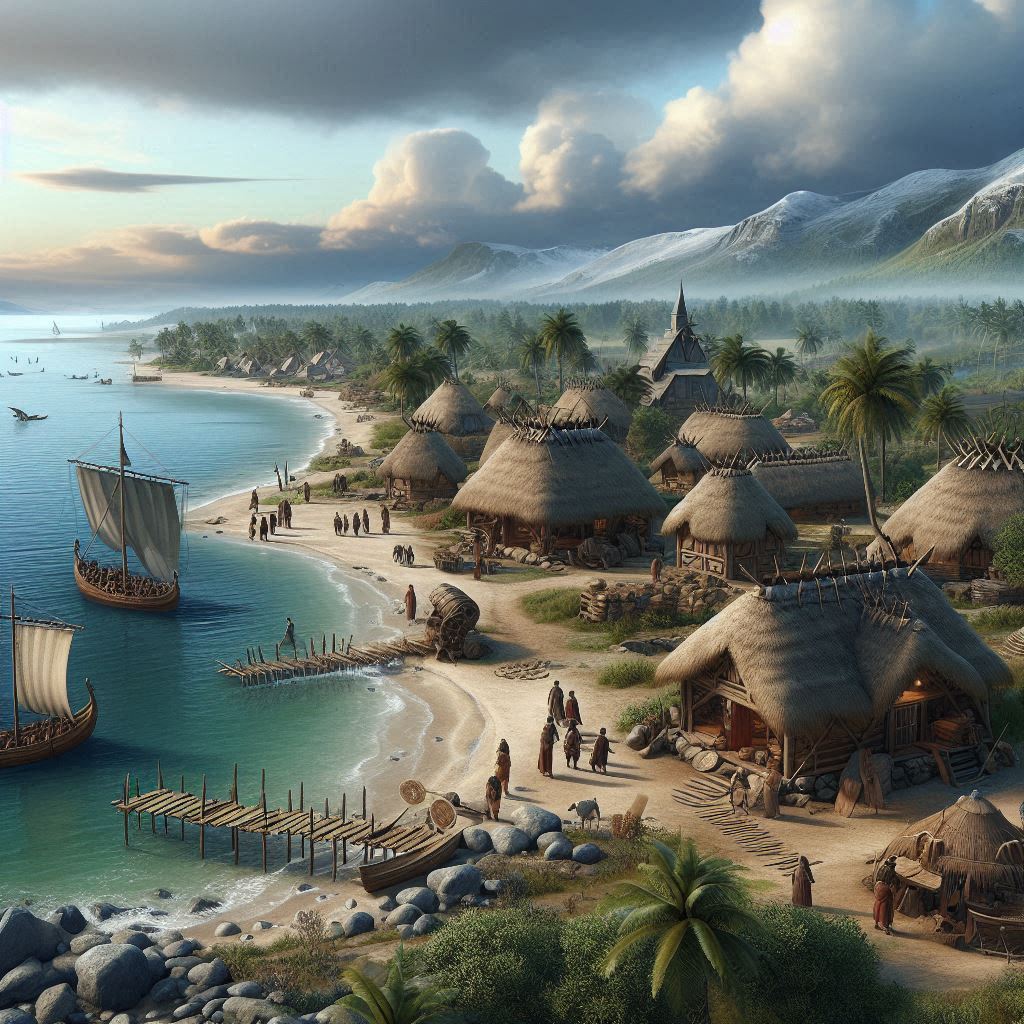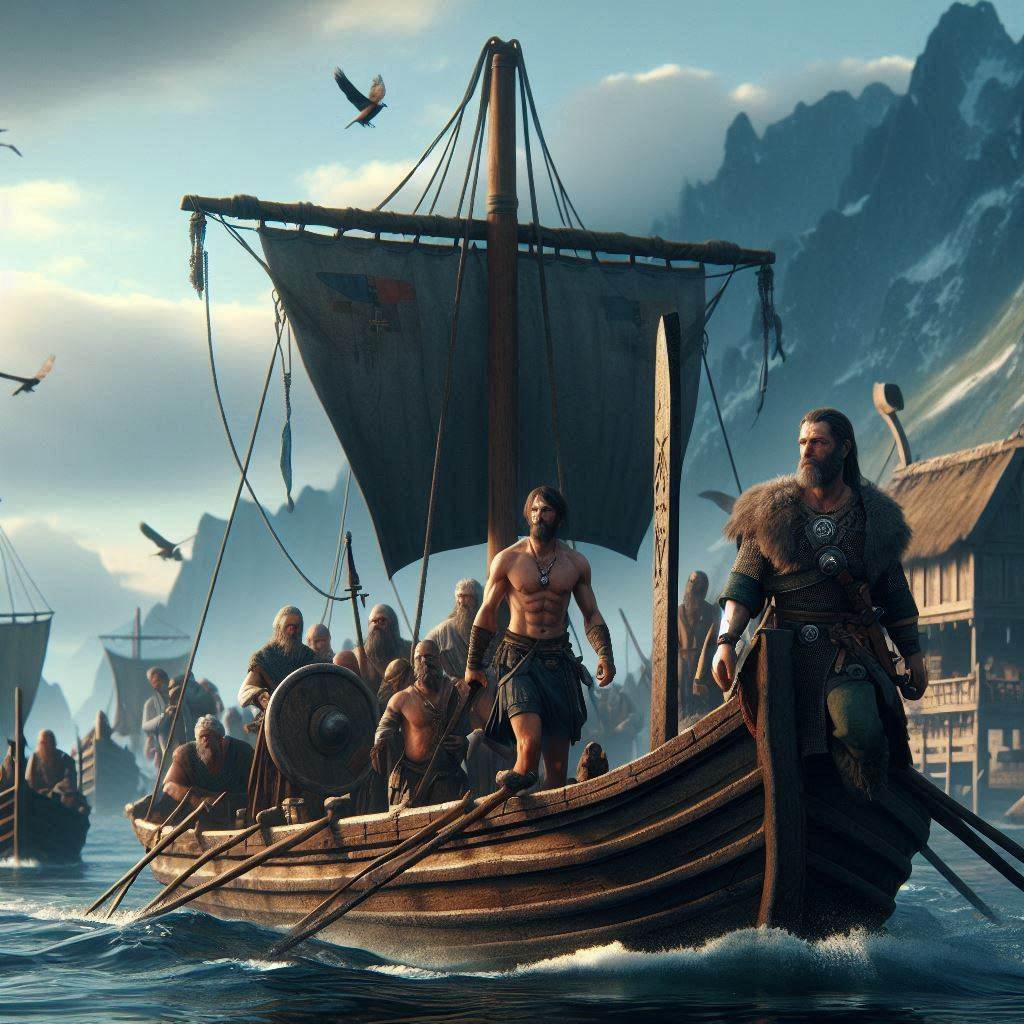Island culture
SKILLS
- Fletching
- Mapping
- Rope Mastery
- Sailing
- Boat Pilot
- Diving
- Fishing
- Navigation
- Rowing
- Swimming
- Weather-Watching
Legend
“Islanders are as varied as the glows on the void sky, shaped by the isolated embrace of their ocean homes.”
Description

Islanders are a diverse and adaptable people, known for their resourcefulness and deep connection to the sea. Skilled in seafaring, fishing, and farming, their lives revolve around the bounty of the ocean and the land. Living in harmony with nature, they frequently interact with other cultures through trade and exploration. Despite their isolation, they maintain a vibrant and dynamic culture.
Lifestyle: Islanders lead a life deeply intertwined with the sea. They are master fishermen, adept sailors, and capable farmers. Their diet is rich in seafood, and their agricultural practices are tailored to the unique environments of their islands. Community life is central, with social activities often revolving around communal feasts, festivals, and maritime expeditions. Their settlements range from small fishing villages to bustling trade ports.
Diet: Islanders depend heavily on fish and seafood, as well as fruits such as apples, coconuts, bananas, and citrus. Root vegetables like taro and yams are staples, and there is often a reliance on trade for grains and other goods not locally available. Island diets are nutrient-rich but can be limited in variety, depending on the island’s resources.
Traditions and Stories: Islanders have a rich oral tradition, filled with tales of legendary seafarers, mythical sea creatures, and epic voyages. Storytelling is an important cultural practice, with elders passing down stories that preserve history, teach valuable lessons, and entertain. Festivals often include performances of these stories through music, dance, and theatre.
Marriage Pattern: Islanders often marry within their community, but it is not uncommon for unions to occur between individuals from different islands, strengthening trade and cultural ties. Marriages are celebrated with elaborate ceremonies that often include music, dance, and feasting.
Religion: Islanders have a deep reverence for nature and the sea. Their spiritual practices include subdued rituals, organised cults, and community shrines. They honour local spirits and the “True Gods,” seeking protection and guidance through offerings and ceremonies. The clergy play an essential role in daily life and governance.
- Polytheism: A pantheon of gods representing various aspects of island life.
- God-Mortal Interaction: They know gods are active participants in mortal affairs, so they often send prayers and give offers.
- Rituals: seafaring rituals, offerings for a bountiful catch, and ceremonies for the deceased.
- Impact on Society: A strong sense of community and reliance on the sea. Seafaring skills and knowledge are often passed down through generations, influenced by religious beliefs.
Skjald Kazumix
Craftsmanship: Islanders are skilled craftsmen, known for their shipbuilding, intricate wood carvings, woven textiles, and pottery. Their works often feature marine motifs and vibrant colours, reflecting their connection to the sea. Items such as nets, sails, and fishing gear are made with great care and expertise.
Clothing & Decoration: Islanders wear lightweight, breathable clothing suitable for their maritime environment. Common materials include cotton and linen, often dyed in bright colours and decorated with patterns inspired by the sea. Jewellery made from shells, pearls, and coral is popular, as are tattoos that signify personal achievements and family lineage.
Armour: Islanders typically wear no armour or soft leather armour, prioritising mobility and agility over heavy protection
Weapons: Their weaponry includes swords, composite bows, daggers, javelins, maces, quarterstaffs, short swords, and spears. These weapons are designed for both hunting and defence, reflecting their need to protect themselves from both human and natural threats.
Special Items: Items made by islanders are often practical yet beautiful, with a rustic aesthetic that appeals to those who appreciate craftsmanship. Common materials include wood, bone, and various fibres, with a focus on items that can withstand the harsh maritime environment.
Skjald El Mary
Time: Their cyclical routine focusses around fishing, planting, and trading. Are influenced by tides, ocean currents, winds, storms, seasonal migrations of sea plants and animals, and celestial occurrences.
Accomplishment and achievement: The community celebrates balanced self-sufficiency and community cooperation, which results in community achievements in defence, construction, and trade. Individual survival, resource collection, competent navigation, and the preservation of island culture are highly valued.
Authority Interaction: Leaders frequently serve as heads of big families, powerful elders, chiefs, or spiritual leaders. Experienced leaders who guide their people with strength while emphasising unity are highly respected, as are navigators, storytellers, and those who preserve traditional knowledge.
Fears & Inabilities: Islanders have local superstitions, often centred around the sea and its mysteries. They fear angering sea spirits and respect the power of the ocean, which can influence their behaviour and rituals.
Mien: Culture significantly influences demeanor, but individual personality is still evident.
Mannerism: Isolation can lead to a close-knit, practical, hard-working, and inquisitive community, butwith a welcoming, hospitable demeanor.
Prejudices: Islanders generally deal well with outsiders, but they often feel uncomfortable with Mariners and Nobility, viewing them with suspicion due to historical conflicts or cultural differences.
Skjald Valgrif
Resistance: Islanders might have developed resistance to diseases that spread in densely populated areas, thanks to their exposure to diverse environments and cultures through trade and exploration.
Disease Resistance: Moderate. Living in close proximity to large populations could expose them to a higher risk of disease transmission, but their isolated upbringing provides some protection.
Poison Resistance: Low to moderate. Their lifestyle does not grant strong natural resistance to poisons, but their knowledge of local flora and fauna provides some defence.
Remedies: Islanders have access to sophisticated medical knowledge, including herbal remedies, concoctions, and alchemical treatments. They use both local plants and imported ingredients to create effective treatments for various ailments.
Skjald Sejrik
History

Island cultures often have a history of isolation, leading to unique languages and customs. They have tales of legendary seafarers, fierce pirates, and heroic defenders of their islands. These stories are integral to their identity, celebrating their resilience and adaptability.
Skjald Ulrich
Cartography

Islanders have developed detailed maps of their islands and the surrounding seas, essential for navigation and trade. Their maps often include information about tides, currents, and hidden dangers, reflecting their intimate knowledge of the maritime environment.
Skjald Yell'a'Beard
Organisation

Island societies vary greatly depending on the size and resources of the island. They might have a hierarchical structure based on fishing or trade or a more egalitarian system. Leadership is often communal, with decisions made by councils of elders, chiefs, or influential families.
Skjald Kazumix
Special

Island cultures possess advanced shipbuilding and navigation skills, enabling them to travel vast distances and engage in extensive trade. They have a deep knowledge of marine life and weather patterns, allowing them to thrive in their maritime environment. Their festivals and rituals often revolve around the sea, celebrating its bounty and seeking its favour.
Skjald Valgrif
Last Updated on 2024-10-20 by IoM-Christian
